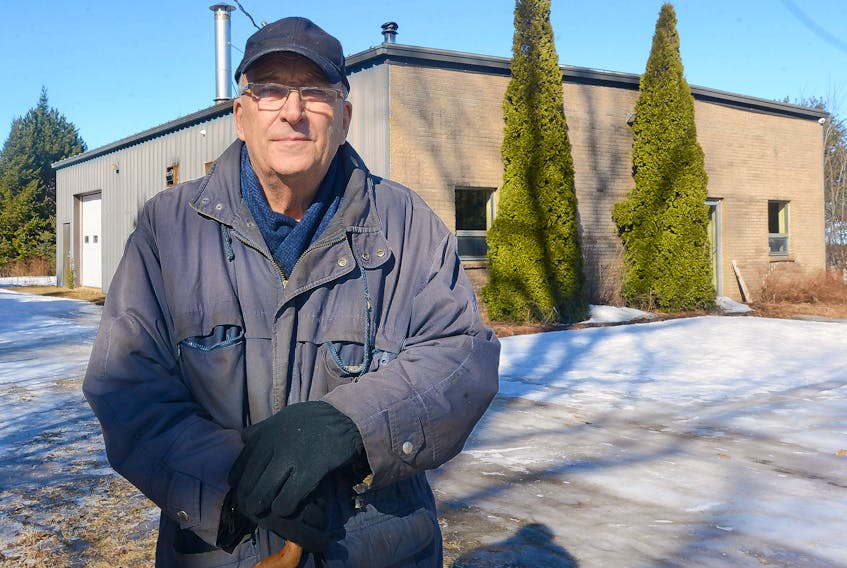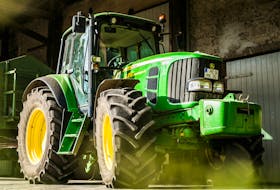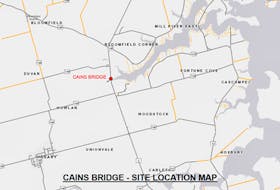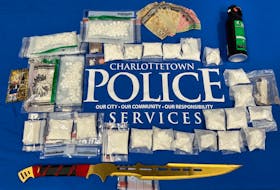EBENEZER, P.E.I. — Kim Dormaar feels as though he’s fighting an upstream battle.
The Ebenezer resident, who was well-known for his award-winning Medallion brand smoked salmon, hopes to practise his craft again.
However, he says he’s been flooded with difficulties in trying to get his processing plant, which produced smoked salmon for about 20 years in P.E.I., reapproved by the province and Canadian Food Inspection Agency (CFIA).
“All I want to do is smoke salmon, and I know how to produce a really good, quality product. There’s no issue with the product,” said Dormaar, who used to process 500 pounds of salmon fillets every week and up to 1,500 pounds a week during the Christmas season.
“But I’m fed up. I can’t do it anymore.”
Dormaar has spent the past several years trying to get his product back on the market.
His troubles started in 2013, when he sold the plant to an individual who was going to make payments through an instalment plan.
However, after the buyer started defaulting on payments, Dormaar ultimately got the plant back through the court system.
The plant’s license was suspended and Dormaar said he had to replace broken and missing equipment from the ordeal before re-applying for production.
According to CFIA guidelines, fish facilities that have not been in operation for an extended period of time are considered new applicants and must be assessed as part of a pre-license verification. They must also meet the requirements of the Safe Food for Canadians Regulations (SFCR) before they can receive a license.
Despite the 20-year history of production, getting reapproved has seemed like an impossible journey to Dormaar. He said the same quality management practices manual that he and the other buyer both used to get production approved has since been denied by the CFIA and province for reasons that he does not understand.
In a statement emailed to The Guardian, a CFIA spokesperson said the plant’s license was suspended because adequate food safety controls described in the quality management program were not being reliably implemented on a consistent basis and the company failed to correct deficiencies previously identified through inspections.
Dormaar disputed that and said the agency does not recognize his smoked salmon for what it is, a craft product created through old-fashioned methods he learned in Holland before immigrating to Canada.
For example, one of the issues Dormaar said he ran into was the fact his smoking room was black. Dormaar said inspectors told him the room should instead be white so they could see any dirt.
“What kind of nonsense is that,” said Dormaar, who took a Guardian reporter on a tour through his facility to explain his smoking process. “Over the years, the walls got dark and black, but that’s good because smoke sterilizes bacteria, that’s why people smoked fish in ancient times to preserve it.
“They measure me by industrial standards, they don’t recognize this is a craft product.”
Under the SFCR, provisions are applied uniformly for all businesses that prepare food for export or to be sent across provincial boundaries.
Dormaar said he has had frustrations in communicating with the CFIA, describing the process as overly “bureaucratic” with excessive “complicated” paperwork.
“Anytime I contact them or write them an email or letter it takes more than a month to get an answer,” said Dormaar, who has been back-and-forth with the agency through emails for several years.
Dormaar said during his production years, he never had a quality issue with his product, which also included smoked eels, trout and mackerel.
In fact, the product gained popularity across the world, including shipments across the U.S. and Europe and even to Canadian soldiers in Afghanistan. He said the product also helped increase P.E.I.’s tourism presence, as he would often hand out brochures of the province while attending store demos and trade shows in the U.S.
A picture still hangs in Dormaar’s plant of a Japanese movie star enjoying his product, while next to that is a Reader’s Digest award for the best smoked salmon in Canada. The product also was awarded the gold medal by the American Tasting Institute two years in a row, an award that was presented at Carnegie Hall.
With a database of more than 2,000 customers he shipped to around the world, Dormaar said he still gets regularly contacted by individuals asking if his product is available again.
“It’s a shame,” said Dormaar. “I loved smoking fish. It’s what I always wanted to do, and this was my opportunity here on the Island. It’s too bad. I don’t know what to do, I’m stuck and I’ve got no support.”









